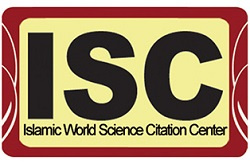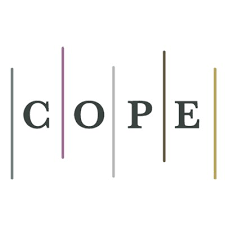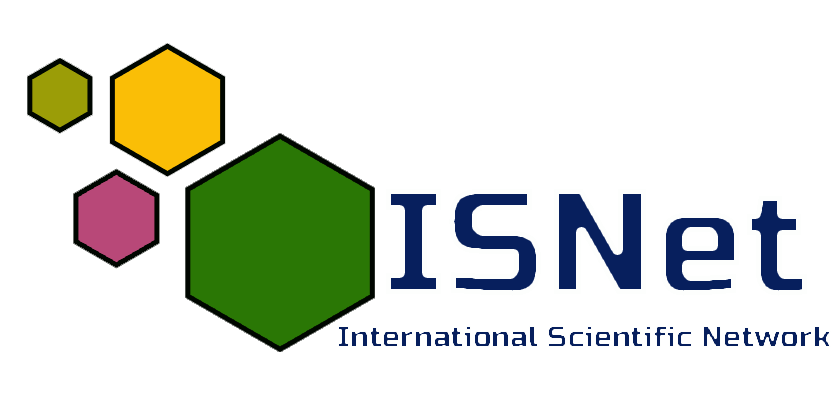The effect of green leaders' Emotional Intelligence on the behavior of employees in organizations with the mediating role of environmental concerns and sustainable organizational culture.
DOI:
https://doi.org/10.59615/ijimes.3.2.62DOR:
https://dorl.net/dor/20.1001.1.27832678.2023.3.2.7.3Keywords:
Emotional Intelligence leadership, Organizational behavior, Green Transformational leadership, Green CreativityAbstract
This paper examines the relationship between the emotional intelligence of green transformational leadership and the organizational behavior of employees. Since previous studies that green motivations affect green creativity have not been conducted, this study aims to fill this research gap and considers the following. For this purpose, in this research, an analysis-based survey approach has been used to gain insight. In order to investigate, experts active in fast-moving industries in Iran have been used. The Partial Least Squares regression method (based on variance) has been used in this research. For this purpose, 120 experts were surveyed and the survey results were evaluated and analyzed. The findings showed that green transformational leadership has a significant effect on Green behavior with the mediating role of green organizational culture, and this is needed for employees to produce clean and green products and services. Therefore, leaders in organizations should increase the green motivation of employees so that they can innovate in the production of sustainable products and services that are compatible with the environment and sustainability.
Downloads
References
Cui, R., Wang, J., & Zhou, C. (2023). Exploring the linkages of green transformational leadership, organizational green learning, and radical green innovation. Business Strategy and the Environment, 32(1), 185-199.
Nozari, H., & Aliahmadi, A. (2022). Lean supply chain based on IoT and blockchain: Quantitative analysis of critical success factors (CSF). Journal of Industrial and Systems Engineering, 14(3), 149-167.
Nozari, H., Ghahremani-Nahr, J., & Najafi, E. (2023). The Role of Internet of Things and Blockchain in the Development of Agile and Sustainable Supply Chains. In Digital Supply Chain, Disruptive Environments, and the Impact on Retailers (pp. 271-282). IGI Global.
Nozari, H., & SADEGHI, M. E. (2020). Identifying the challenges facing the telecommuting plan and providing solutions for its effective implementation-a case study of the ministry of industry, mines and trade.
Nozari, H., Jafari-Eskandari, M., Kamfirozi, M. H., & Mozafari, A. (2014). Using Numerical Taxonomy and Combined Bulls-Eye–Shapley Weighting Method in Order to Ranking Websites of Iranian Universities by Three-Parameter Interval Gray Numbers. Arabian Journal for Science and Engineering, 39, 3299-3305.
Suliman, M. A., Abdou, A. H., Ibrahim, M. F., Al-Khaldy, D. A. W., Anas, A. M., Alrefae, W. M. M., & Salama, W. (2023). Impact of Green Transformational Leadership on Employees’ Environmental Performance in the Hotel Industry Context: Does Green Work Engagement Matter?. Sustainability, 15(3), 2690.
Perez, J. A. E., Ejaz, F., & Ejaz, S. (2023). Green Transformational Leadership, GHRM, and Proenvironmental Behavior: An Effectual Drive to Environmental Performances of Small-and Medium-Sized Enterprises. Sustainability, 15(5), 4537.
Ghahremani-Nahr, J., Nozari, H., & Aliahmadi, A. (2023). Contract Design for Return Products in a Cooperative Closed-Loop Supply Chain. Global Business Review, 09721509221148892.
Sachdeva, C., & Singh, T. (2023). Green transformational leadership and pro-environmental behaviour: unravelling the underlying mechanism in the context of hotel industry. International Journal of Organizational Analysis.
Fallah, M., Sadeghi, M. E., & Nozari, H. (2021). Quantitative analysis of the applied parts of Internet of Things technology in Iran: an opportunity for economic leapfrogging through technological development. Science and technology policy Letters, 11(4), 45-61.
Gharachorloo, N., Nahr, J. G., & Nozari, H. (2021). SWOT analysis in the General Organization of Labor, Cooperation and Social Welfare of East Azerbaijan Province with a scientific and technological approach. International Journal of Innovation in Engineering, 1(4), 47-61.
Özgül, B., & Zehir, C. (2023). How Managers’ Green Transformational Leadership Affects a Firm’s Environmental Strategy, Green Innovation, and Performance: The Moderating Impact of Differentiation Strategy. Sustainability, 15(4), 3597.
Aliahmadi, A., Nozari, H., Ghahremani-Nahr, J., & Szmelter-Jarosz, A. (2022). Evaluation of key impression of resilient supply chain based on artificial intelligence of things (AIoT). arXiv preprint arXiv:2207.13174.
Singh, S. K., Del Giudice, M., Chierici, R., & Graziano, D. (2020). Green innovation and environmental performance: The role of green transformational leadership and green human resource management. Technological forecasting and social change, 150, 119762.
Awan, F. H., Dunnan, L., Jamil, K., & Gul, R. F. (2023). Stimulating environmental performance via green human resource management, green transformational leadership, and green innovation: a mediation-moderation model. Environmental Science and Pollution Research, 30(2), 2958-2976.
Yu, W., Chavez, R., Feng, M., Wong, C. Y., & Fynes, B. (2020). Green human resource management and environmental cooperation: An ability-motivation-opportunity and contingency perspective. international journal of production Economics, 219, 224-235.
Kim, Y. J., Kim, W. G., Choi, H. M., & Phetvaroon, K. (2019). The effect of green human resource management on hotel employees’ eco-friendly behavior and environmental performance. International journal of hospitality management, 76, 83-93.
Published
How to Cite
Issue
Section
License
Copyright (c) 2023 Parisa Gharibi Khoshkar

This work is licensed under a Creative Commons Attribution 4.0 International License.












